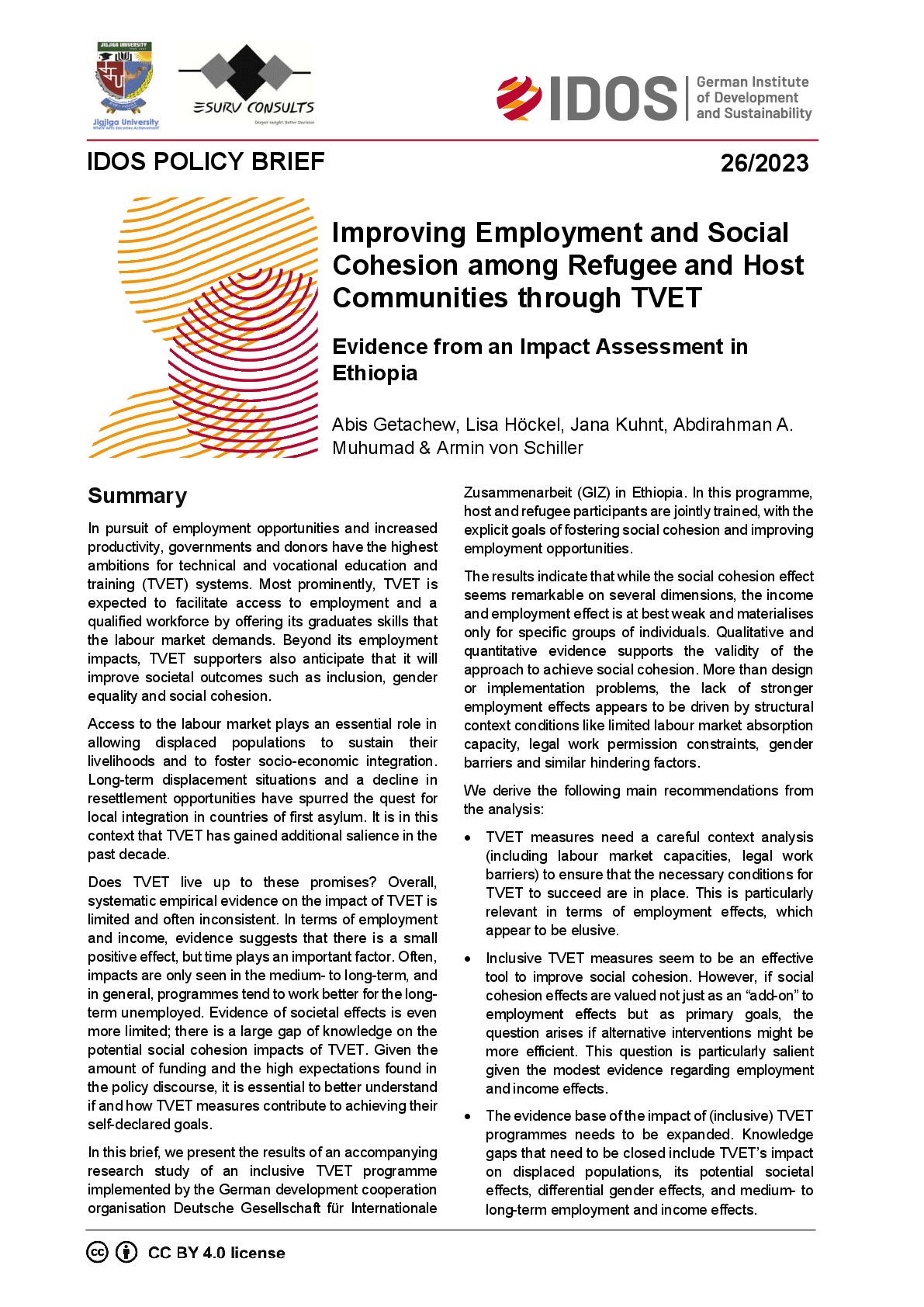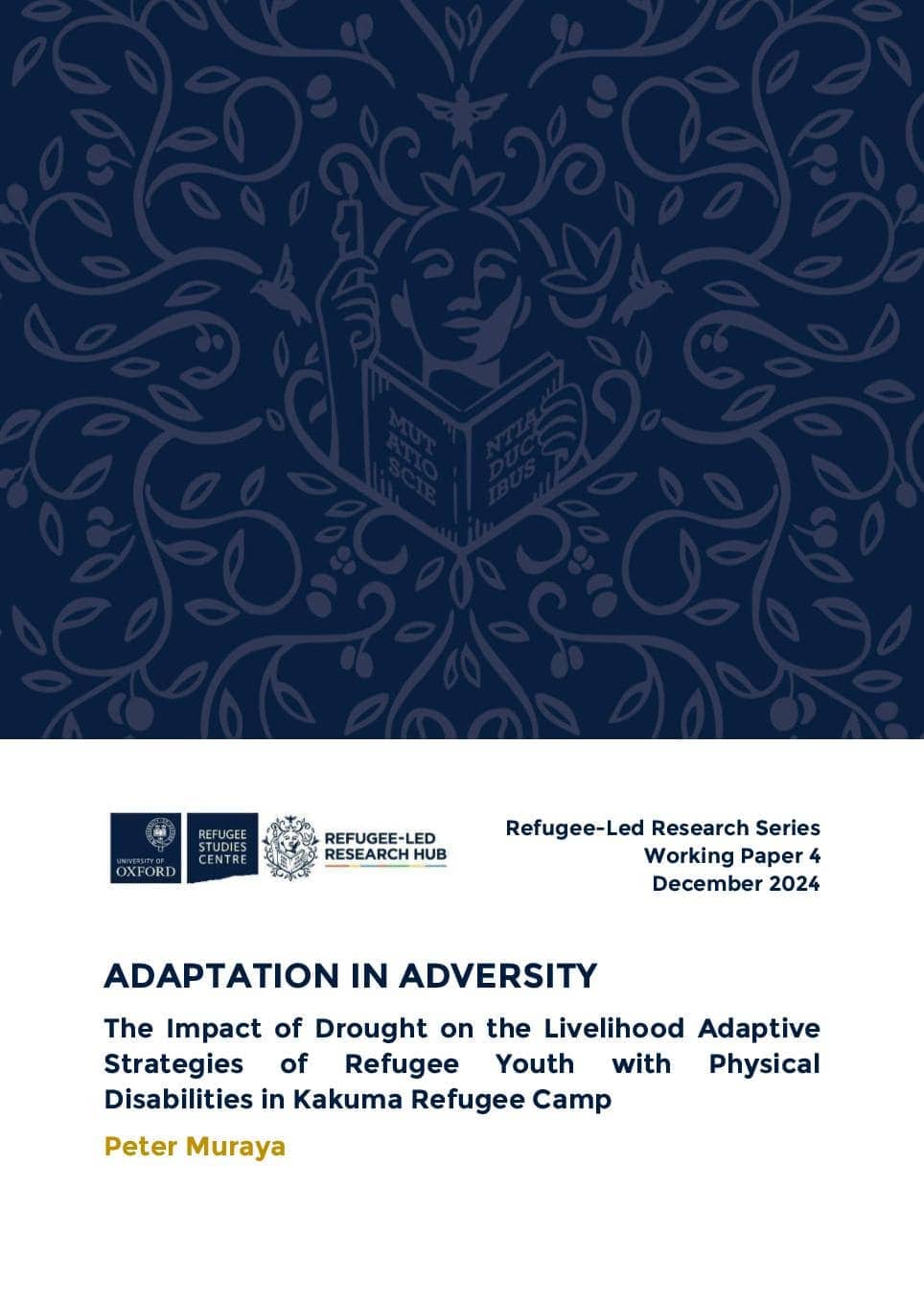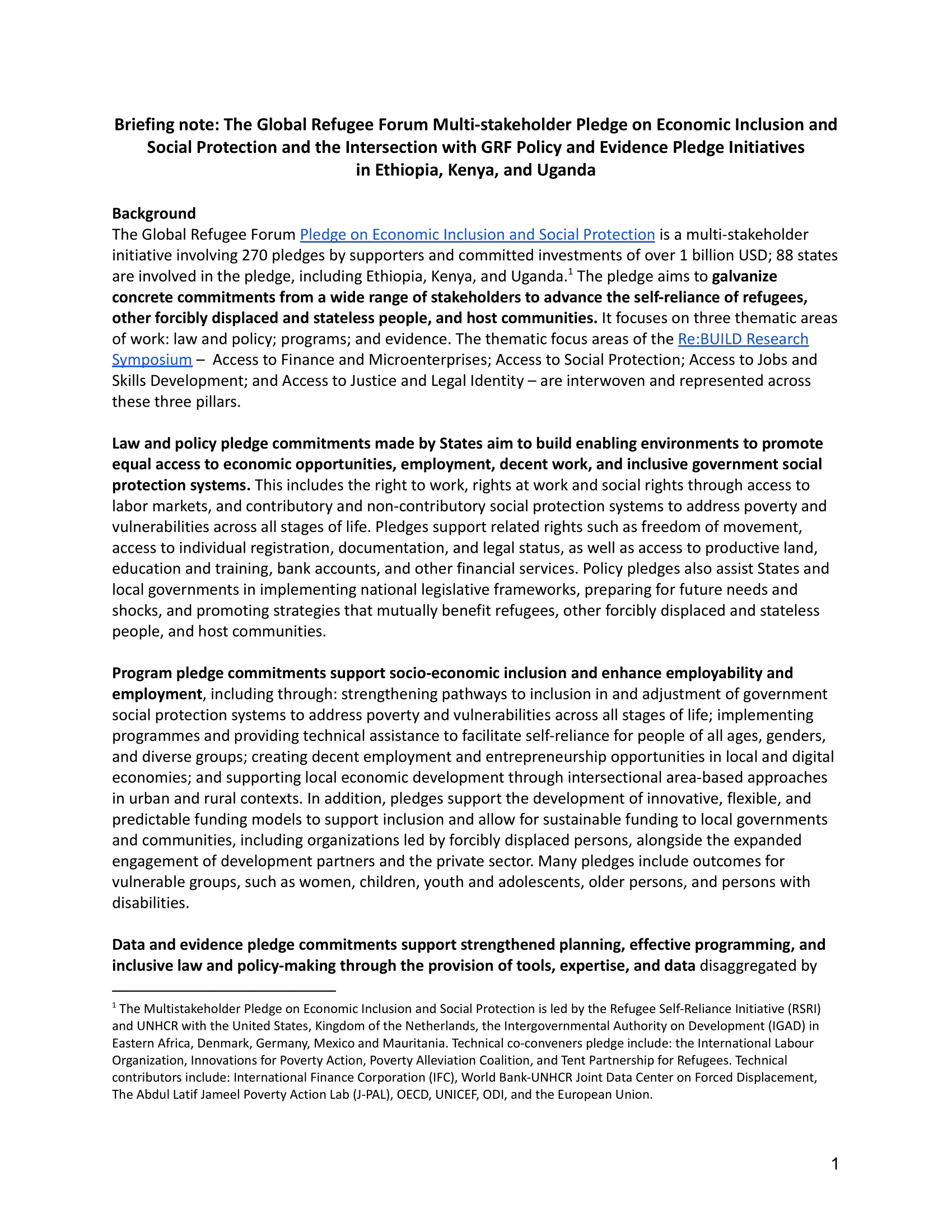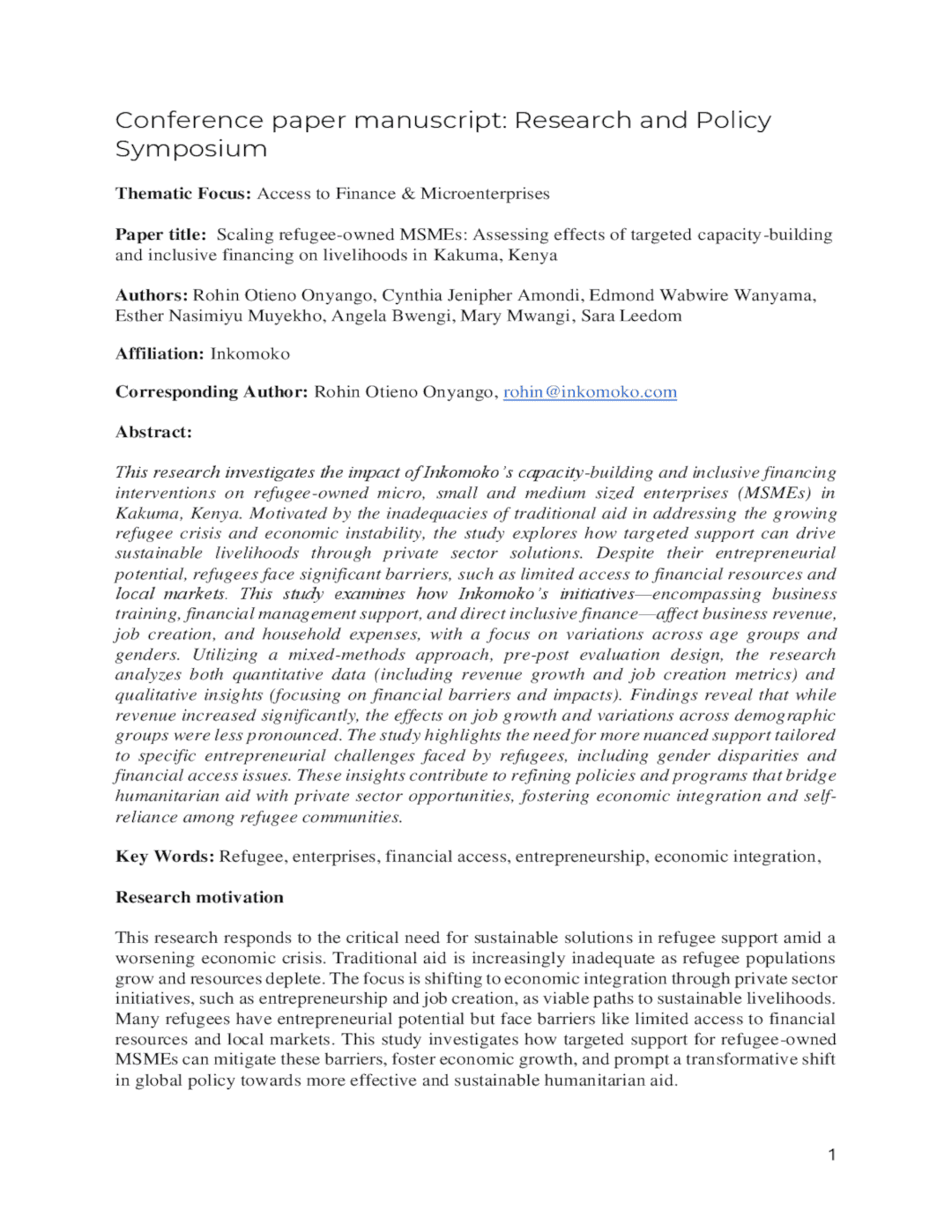Improving Employment and Social Cohesion among Refugee and Host Communities through TVET
Improving Employment and Social Cohesion among Refugee and Host Communities through TVET
In pursuit of employment opportunities and increased productivity, governments and donors have the highest ambitions for technical and vocational education and training (TVET) systems. Most prominently, TVET is expected to facilitate access to employment and a qualified workforce by offering its graduates skills that the labour market demands. Beyond its employment impacts, TVET supporters also anticipate that it will improve societal outcomes such as inclusion, gender equality and social cohesion.
Access to the labour market plays an essential role in allowing displaced populations to sustain their livelihoods and to foster socio-economic integration. Long-term displacement situations and a decline in resettlement opportunities have spurred the quest for local integration in countries of first asylum. It is in this context that TVET has gained additional salience in the past decade.



